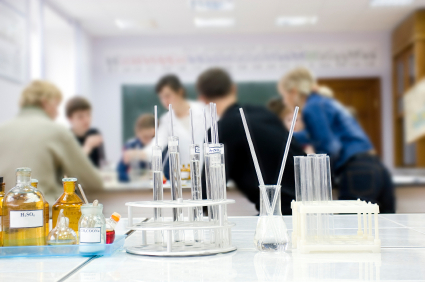Chemist (process)
 |
So, what do you do?
I am responsible for designing suitable chemical syntheses of small molecules that have shown potential as drugs and making them on larger and larger scales.
What does your typical day involve?
Before starting in the lab each day I spend about 90minutes in my office, catching up with emails and reading the chemical literature. For the rest of the day, until about 6pm, I am usually performing experiments in a laboratory, though I break for lunch for 45min.
Two or three times a week I have meetings associated with my project, or, less frequently, departmental business. I usually have numerous discussions each day with my line manager. These deal with my project or activities that raise my profile within the department.
Do you work mostly on your own or as part of team?
I have responsibility for delivering a particular piece of my project but the other people on the same project aid me on a day-to-day basis and I would like to think that, on occasions, I also assist them with their work.
How has your career developed since you entered the industry?
Whilst I have not been promoted, as such, I have been given increasing amounts of responsibility for coaching younger members of the department. I have also had the chance to help organise seminars held within the department involving external speakers.
What qualifications and experience did you have when you entered the industry?
I did a BSc (Hons) in Chemistry, at the University of Strathclyde which included a sandwich year with Pfizer. I then did a PhD in Chemistry at Cambridge University, followed by postdoctoral research at the University of California.
Why did you decide on a career in the pharmaceutical industry?
I wanted the opportunity to apply the technical skills I had acquired during my PhD and postdoc to high risk, high reward projects which ultimately may yield drugs that can make a real difference to a person’s quality of life.
When did you make this decision?
As I was doing my PhD I became increasingly disillusioned with academia, but wanted to continue doing chemical research.
What are you most proud of in your career?
Being named one of the ‘Leading Chemists of the Next Decade’ at a symposium held at Roche (Basel).
What possibilities are there for your career in the future?
I will have the chance of choosing between moving up a scientific or a managerial ladder, and will be given increasing amounts of supervisory responsibility.
What do you think are the most important skills for someone in your role to have?
Excellent laboratory skills, an in-depth knowledge and understanding of organic chemistry, and a passion for science.
Do you think any particular qualifications or experience would be an advantage for someone entering the industry now?
Big companies can afford to train employees in areas that are of secondary importance to their core activities, and are more likely to hire someone based on their long-term potential. Smaller companies need scientists with prior experience of the drug discovery process so that when they start, they are ‘up to speed’ with the job from day one. In the second case, a job seeker with prior experience of the technologies used everyday in pharmaceutical research and development will always have an advantage.
What one piece of advice would you give to someone seeking a career in the pharmaceutical industry?
Employment in the pharmaceutical industry is becoming an increasingly volatile business, and there is no such thing as ‘a job for life’. A successful job seeker should therefore not expect to stay within the same sort of role, or with the same company, throughout their career.
Case study
 By working in the pharmaceutical industry you are doing something to make people better and improve their quality of life, and that is very important to me.
By working in the pharmaceutical industry you are doing something to make people better and improve their quality of life, and that is very important to me.
